#biblical parallels
Text
an angle that i can't remember anybody pointing out abt Gideon re: christ allegory is the idea of Wake as Mary conscious of what her role entails. Mary conscious of and accepting of the sacrifice her child will be used for.
she's visited by one of god's lyctor's – directly contacted by Mercymorn with an opportunity – and outside her interactions w G1deon, she's the only one of them Wake ever meets. in the bible, the angel who visits Mary is the same angel that directs the wise men to seek Mary and Jesus out in Jerusalem, which adds a more sinister parallel to Mercy being the one to direct G1deon to Wake's location over the Ninth.
Wake has no direct interaction with John/God until after she’s already dead, and therefore Gideon’s conception is, like Mary’s conception of Jesus, almost completely separate from God at all, except that the resulting child will be his biologically (or spiritually in Jesus’ case).
she takes a literal journey while heavily pregnant to reach the Ninth, and has to give birth in less than ideal conditions and surroundings. and the story diverges further from there, because instead of being visited and given gifts for her child’s birth, she’s attacked, betrayed, and murdered before she can complete the mission she did any of this for.
(one could argue that G1deon and Pyrrha’s role in this allegory is both that of the wise men (keeping up three separate identities = three wise men right? g1deon, pyrrha, and the Saint of Duty all visited on her in one form. much to think on) – but also of Joseph (especially given Pyrrha tells John in HTN that she didn't tell him abt Wake's pregnancy because she assumed the child was hers, and upon finding out Gideon isn't hers, she's obviously conflicted abt it, but inevitably settles on wanting to be a parent/parental figure to her despite the truth and the complexities of Wake's actions) but that’s just a whole Can of Worms, because we know very little of what actually went down during their interaction leading up to the airlock, so we’ll just let the concept lie there for the moment.)
Wake conceives, carries, and gives birth to Gideon, the distanced but biological child of God, knowing she’ll be used as a sacrifice, knowing through trial and error that the only viable method for this plan to work is through carrying the child herself. she does it all under the faith that if she does it all correctly, if she works hard enough, toughs it out, it will all be worth it. arguably, she never sees the Tomb fully opened, but she sees it breached.
another fun tidbit from this train of thought is the idea that her niece is named Our Lady of the Passion, a tangential name for the Virgin Mary in some sects of catholicism. beyond death, Wake’s belief in her mission to rid the universe of John and the Houses, her passion, as it were, is once again present in Pash, who is not exactly present when the Tomb is opened, but is around and conscious enough of her connections and roles to realise her dang cousin is also hanging around on the same planet her aunt died on. excited to see whatever dynamic she and Gideon develop in atn, Muir willing.
#this isn't really a theory it's just an interesting angle i've been thinkin abt all morning#wanted to share#commander wake#gideon nav#mercymorn the first#pyrrha dve#gideon the first#our lady of the passion#tlt#the locked tomb#tlt meta#john gaius#biblical parallels#imagining a fucked up nativity set where it's not even a barn it's a blood-streaked shuttle interior#and mercy's the angel gabriel. wake's holding an open cryotube w gideon in it + she's holding a knife#g1deon/pyrrha are standing beside her looking shocked/weirded out holding their spear#bonus set characters include augustine ianthe and john wearing various expressions of shock#to stand off to the side as if envisioning the scene#anyway#gideon being lesbian jesus hits different every single damn day
361 notes
·
View notes
Text
BSD Theory
(Summary at the bottom)
I saw a post (https://www.tumblr.com/sherxplained/743992135434518528/so-long-awaited-fyodors-backstory-asagiri?source=share) that said that Fyodor could have created the abilities, and that's why we see him in the time of the crusades. (I personally thought this was very interesting, and it made me think.) His ability name could have been inspired by that, as he did the crime and must accept the punishment:
Immortality
Whatever punishment Bram Stoker decides on
Being something completely new [will explain] )
So, as we can see, Dostoevsky was caught at Bram's palace. In the newest chapter, Bram orders that he is executed. This leaves us to wonder how Dostoevsky managed to take control of Bram. So, many years later, Bram is under Dostoevsky (but different version). It's clear that Bram has lots of enemies (the Sultan, Rome, etc), as he's accused of being a spy for a few people before his punishment is ordered.
Dostoevsky talked about how Bram is "the Devil", and it leads to a conversation about how both the Devil and humans were created by gods, which "Would it not stand to reason that both are just as cruel?" (Bram Stoker). Clearly, people have been attacking Bram for many years, and he's under the impression that humans are all cruel (we'll have to see how this ties back to the person who looked like Aya Koda). According to the wiki, his cells were mutated due to an ability, which caused him to, you know, vampire it all up in here. My prediction is that Bram was shunned by humanity due to this, and all of the people against him and the vampires are people he has deemed cruel and devilish, like him.
Dostoevsky could have been replaced. Based on the memory that Sigma sees, we can infer that he was lying about the split personality, like he said. The scar on his face most likely didn't heal, so what happened to him? How has he lived this long?
My personal theory is that he is eternally youthful, but when he passes away due to being murdered or however, he spawns in somewhere else, for lack of a better word, completely free of that scar. I think he got the scar by doing something humane, maybe saving a person. In the original Crime and Punishment, Raskolnikov saves a girl early in the book, and wonders why he did it. He later thinks he has no humanity. What if Dostoevsky protected someone, and by doing so, committed a crime worse than mass terrorism, like killing a priest, or some other holy figure? His punishment is to live forever without the thing that reminds him of his humanity.
We don't know his ability, but my bet is that he was shunned by humans for it. There, he turned to the church, believing that as God was the one who blessed him with the abilities, he would still love him. There, he met someone worth protecting, someone who gave him life (My bet is that there is a parallel to irl Nikolai Gogol and BSD Dostoevsky), and he suddenly has someone to live for. Then, something happens, he protects the person, but they no longer think of him as human, or probably start praying while he watches, praying to be saved from Dostoevsky. There, he uses his ability on his friend, killing them. His punishment for the crime is for his humanity to be stripped away. This is also a parallel to Jesus, where he died as a punishment for humanity's sins, but instead of coming back only once (or twice with the rapture), he repeatedly comes back, and every time, his humanity leaves him again, coming back more and more inhuman as time goes on, paying for his own sins.
Now, this is all incredibly farfetched, but these are my own theories and thoughts on the newest chapter.
Summary: Dostoevsky will reincarnate into a new, injury free version of his body as a punishment for his actions before BSD 113
#bungou stray dogs#bsd 113#bsd fyodor#theory#bram stoker#bsd bram#fyodor#sigma#bsd spoilers#bsd#vampire#biblical parallels#jesus parallel#fyodor backstory theory
28 notes
·
View notes
Text
Something something, God lied to Adam and Eve to protect them. When Eve sought answers on her own, tried to push beyond the garden, she was punished with knowing and shame and torment. John lies to Sam about what he is to protect him, he finds out anyway. Raised resenting his tiny life, wanting something different. He is punished with loss and fear and pain and shame. He pushes Dean to rebel and he too is punished. Sam is surrounded by women who die.
#sam winchester#supernatural#dean winchester#spn#christian bible#john winchester#biblical parallels#gencest
12 notes
·
View notes
Text
Something I've been thinking about:

Likewise, isn't there more to being a Christian than just following a bunch of rules?
Screencap came from @vertekins on Twitter. I just copied it off Google.
#sonic the hedgehog#sonic and the black knight#not my screencap#biblical parallels#i'm trying to cut ties with my legalistic background#'tain't easy
2 notes
·
View notes
Text
the biblical parallels between the final chapter of greywaren and the opening of genesis got me feeling emotions in the club tonight
#greywaren#greywaren spoilers#biblical parallels#lynch brothers#tdt#the dreamer trilogy#cdth#mi#call down the hawk#mister impossible
11 notes
·
View notes
Text
I'm gonna preface this by saying that I'm a Christian and that I think Charlotte is a fantastic redemption story.
I also want to add a disclaimer that I have yet to read or watch any behind the scenes or "making of" for this show. My opinions are all my own, based on what I see in the show itself.
I love how Ayumi's death is never explained. I mean, we get a whole time travel thing where she gets saved, yes. But it's never explained. We never get a good answer as to why she had to die. It's senseless and meaningless to watch, just one wicked person with a knife and then Ayumi's own power emerging for the first and last time as a reaction to the stress she's under. There's no reason for her to die.
Except... as a plot device. An extremely powerful one. And handled so amazingly well, it doesn't feel forced, it's never forgotten, and it drove Yuu's entire redemption arc.
I love how they handled Ayumi's death, because senseless, meaningless deaths happen all the time IRL. When it's a bad person, "oh, they had it coming to them," and when it's an old person, "well they lived a long, full life and it was time," but a kind and gentle child or young person, with nothing but love and compassion for others? And such a person dies in a freak car accident, or gets inoperable cancer at a young age, or gets mugged and stabbed by some weirdo in a dark parking lot.
It happens. And there's never a reason for it.
Except there is a reason. Sin is in the world, and death because of sin. Freaky accidents, disease, murder, natural disasters- all the result of sin in the world.
As a Christian, I believe that God is 100% sovereign and in control. So everything that happens, He either caused it or allowed it. Including the deaths of good people. Do I understand it? No. Do I get mad at God for it sometimes? Ohhhh, you better believe it. Sometimes I have trouble trusting Him because I'm afraid He'll take everything away from me. (I'm not perfect. I've had a lifetime of crap that left me terrified and angry about a lot of things.)
So I'm not gonna try to explain why bad things happen to good people, because I don't understand it. All I want to say is that there is a Biblical parallel between Ayumi and the Bible's story of salvation.
Ayumi's death became a plot device to drive Yuu's redemption arc. In a sense, she became his sacrificial lamb. Yuu lost everything when he lost her, and his life went completely off the rails until Tomori tricked him into facing his own fears and feelings for his sister.
Ayumi was a sweet child that never hurt anyone. There was no reason she should have died. She did nothing worthy of death, she just existed, and someone decided to hate her for existing. And so she did die. And the hater who killed her escaped without a scratch. And Ayumi's death became the catalyst for Yuu to heal inside from a lifetime of wounds inflicted by the neglect and abandonment of everyone who was ever supposed to be there for him.
When Jesus died on the cross, there was no reason for it. Jesus was without sin. It was senseless, it shouldn't have happened. People were jealous and angry at Him for pointing out their sin, their greed, their lust. So they killed Him. There was no reason for it. Jesus shouldn't have had to die, because He did nothing worthy of death. He just existed, He did what was right in all circumstances, and people hated Him and killed Him.
And Jesus' death is the catalyst for our healing. We are all broken and hurting, because the world is broken and hurting. If anyone can come to that place where they can realize that Jesus didn't have to die, but that He did die for them, that person can accept His sacrifice and let Him heal them. Because unlike Ayumi, Jesus didn't stay dead. Yes, we see Ayumi again, but there's a big difference between Yuu going back in time to save her, and Jesus literally raising Himself up from the dead. Ayumi didn't save Yuu all on her own, Tomori had to finish the job. But Jesus can heal us entirely on His own because He is ALIVE. He alone had power over death to bring Himself back to life, and He alone has power to heal everything in our hearts that's crushing us and killing us. He's just waiting for each of us to let Him heal us.
#charlotte#anime#Biblical parallels#ayumi otosaka#yuu otosaka#Chrisitanity#salvation#redemption#Jesus#crucifixion#resurrection
1 note
·
View note
Text

0 notes
Text
The Law and The Promise
The lineage of Abraham and his descendants bears a dual significance. While it undeniably holds a place in secular history, laying the groundwork for the eventual emergence of the Israeli and Arab peoples, the crux lies in the allegorical interpretation, often expounded by Neville Goddard—the PROMISE that transcends mere historical accounts.
Neville Goddard, known for his interpretations of the…

View On WordPress
#Abraham&039;s Lineage#Allegorical Discourse#Allegorical Meaning#Allegorical Narration#Allegorical Wisdom#Allegory and Allegiance#Allegory and Parables#Allegory and Truth#Allegory in Faith#Allegory in Scripture#Allegory Unveiled#Bible Mysteries#Biblical Allegory#Biblical Interpretation#Biblical Mysticism#Biblical Parallels#Biblical Revelations#Biblical Symbolism#Christian Mysticism#conscious creation#conscious manifestation#Deep Biblical Meaning#Deep Spiritual Insights#Divine Allegiance#Divine Allegory#Divine Promise#Esoteric Christianity#Hidden Biblical Truths#higher consciousness#Imagination and Creation
0 notes
Text
You know, Sonic's belief that people should have the freedom to change, and that's why he doesn't like to take a life, is a bit like the parable of the wheat and the tares. Tares are like weeds, but they look so much like wheat until they mature, it's better to just let them grow up with the wheat and then just separate them later.
And that's why God allows evil people in the world. That's why He allows evil people in the church. Because sometimes those evil people can (and do!) change. The Apostle Paul was a good example- he called himself the "least of the apostles" because he persecuted the church, but God used him to write like half of the New Testament.
God knows whether someone has truly accepted Him or not, but we don't, and He doesn't usually tell us. But at the end, everything will be clear. He always gives everyone a chance to accept Him and turn to Him, and those who didn't... well, you can read Matthew 13:24-30 and 36-43 and see for yourself.
Anyway, my point is, God gives all of us the freedom to change and to choose.
0 notes
Text











Hannibal doesn't pray. But he believes in God. Intimately.
"mizumono" / genesis 16:13-15 / "mizumono" / genesis 16:13-15 / "secondo" / saint augustine / "secondo" / the lord's prayer / "dolce" / obadiah 1:13 / "dolce"
#will graham#hannibal lecter#hannibal#hannibal nbc#nbc hannibal#hannigram#murder husbands#hannibal script#hannibal comparatives#hannibal comparisons#hannibal parallels#biblical quotes#hannibal and god#the scripted clown
1K notes
·
View notes
Text
Okay but I do get really tired when people rag on Narnia's Biblical parallels for being too overt. Like, yeah dude. It's written for kids. Most kids don't do subtlety. I knew my Bible better than probably 95% of third graders, and yet my parents still had to clue me in. I've talked to people who grew up secular and didn't realize Narnia was Christian until well into adulthood. The Christian parallels in Narnia are at a pretty perfect level for most kids, and the fact that we as adults continue to get new spiritual meaning from it as we grow is a real testament to the depth of Jack's writing.
#mostly i just get sick of narnia being compared unfavourably to lotr#they are written for two different audiences with different purposes and different ingredients and they are both good!#like yeah okay tolkien disliked allegory. (a) narnia isn't exactly allegory and (b) even if it were would that be so bad?#Jack's over here doing his own thing. i for one love how overt Narnia's Biblical parallels are#okay rant over#why did i ever think it was a good idea to talk narnia on the internet. i am way too defensive and possessive of it#pontifications and creations#narnia
911 notes
·
View notes
Text
isaac

#ive been sitting on this one for ages#something something jason and bruce isaac and abraham parallels#something something sacrificing your son in service of a god#glad to see fucked up biblical parallels are not apparently exclusive to orv for me#jason todd#dc robin#dc#dc comics#dc fanart#batman#bards dc thoughts#bard draws
421 notes
·
View notes
Text
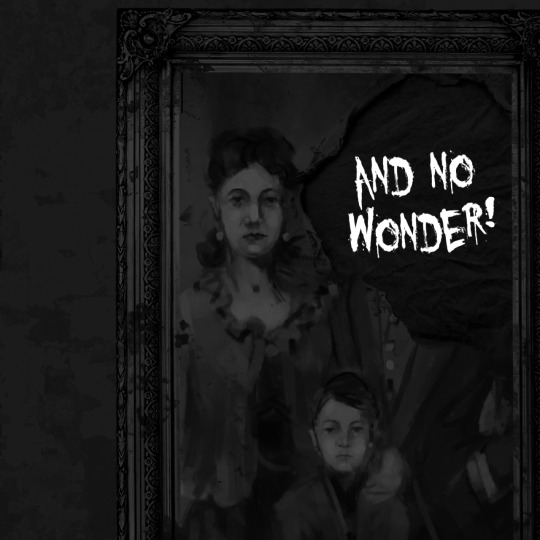
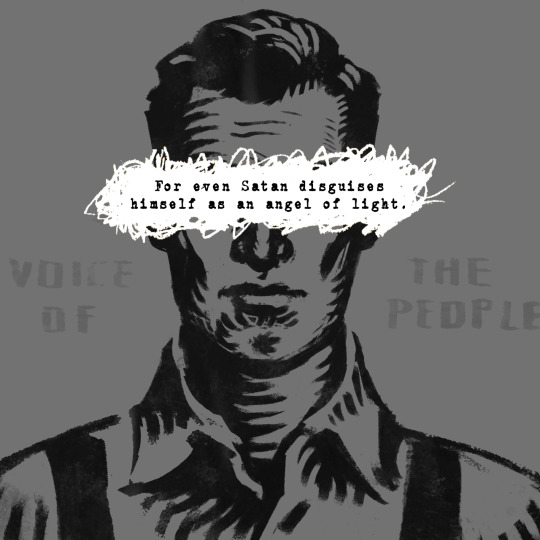
2 Corinthians 11:13-15
For such people are false apostles, deceitful workers, masquerading as apostles of Christ. And no wonder! For even Satan disguises himself as an angel of light. It is not surprising, then, if his servants also masquerade as servants of righteousness.
133 notes
·
View notes
Text
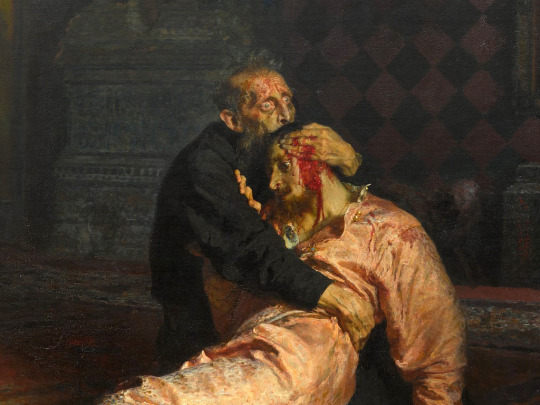



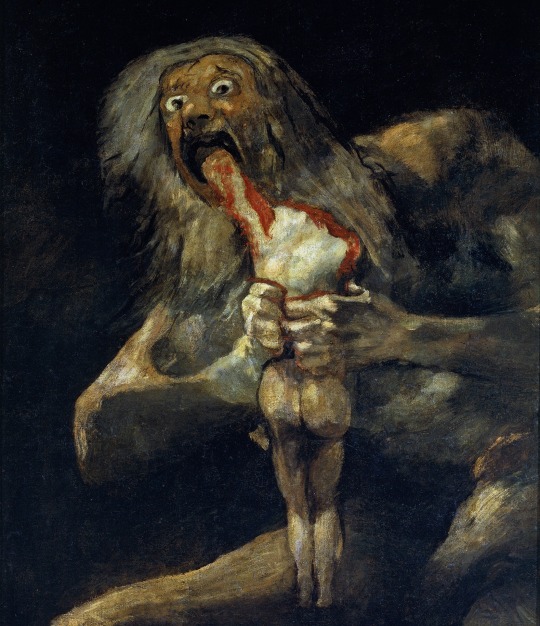



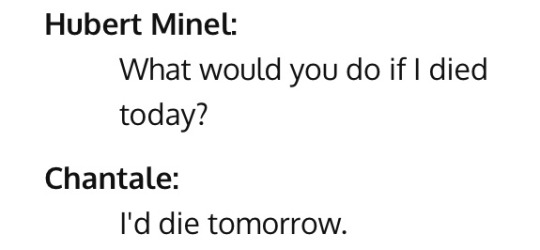

Ivan the terrible and his son, Ilya Repin// Letters to his father, Franz Kafka//Twin Peaks// The juniper tree and other tales from Grimm,The Grimm brothers// Saturn devouring his son, Francisco Goya// Succession// Sacrifice of Isaac, Caravaggio// Twin Peaks// The Godfather part 3// I killed my mother// Succession
#web weaving#parallels#ilya repin#twin peaks#goya#succession#religion#biblical imagery#laura palmer#the godfather#the godfather part 3#michael corleone#i killed my mother#art#daddy issues#david lynch#roman roy
818 notes
·
View notes
Text

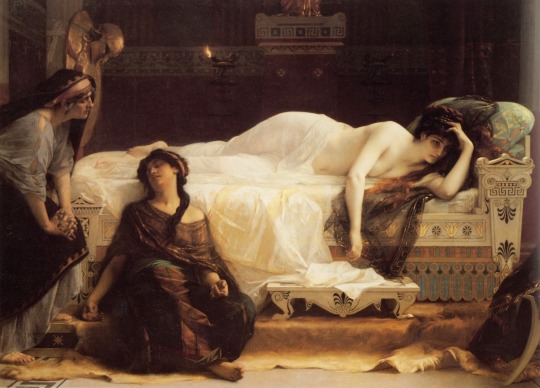
My Chemical Romance - In The Studio 2002 // Phaedra by Alexandre Cabanel (mirrored)
#theyre draped so gracefully#frank too high to get off the couch#this vid is biblical to me#the similarities stop at surface level btw#the play the painting depicts is….. um#parallels#bullets#in the studio#f#r
2K notes
·
View notes
Text

cRinGeTobEr dAy FOURRR: angel x demon
#BIBLICALLY ACCURATE SAIOUMA BE UPON YE#cringetober2023#oumasai#eyestrain#saiouma#maiora draws#get it!! because lucifer means light bringer in latin!!!! and and and#LIGHT AND REVELATION AND SUBVERSION PARALLELS!! MY VISION-#/silly#I've made something that makes me genuinely ill looking at it HAHAHAH massive W!!!#shoutout to my friend for contributing the fingers in the background even though ya cant fucking tell they're there!!! LMAO#don't look for them please spare your eyes#cw religious imagery#shoutout to my religious trauma i am now recycling into cringetober drawing pfft!!
379 notes
·
View notes